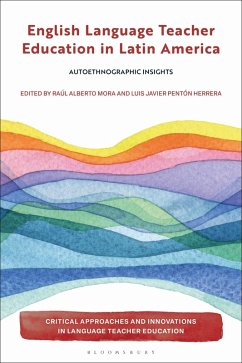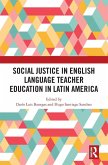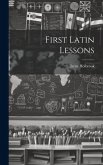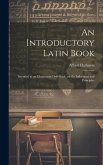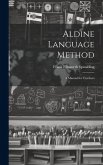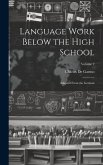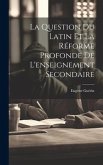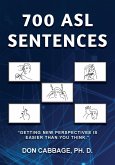English Language Teacher Education in Latin America
Autoethnographic Insights
Herausgeber: Mora, Raúl Alberto; Herrera, Luis Javier Pentón; Yazan, Bedrettin
English Language Teacher Education in Latin America
Autoethnographic Insights
Herausgeber: Mora, Raúl Alberto; Herrera, Luis Javier Pentón; Yazan, Bedrettin
- Gebundenes Buch
- Merkliste
- Auf die Merkliste
- Bewerten Bewerten
- Teilen
- Produkt teilen
- Produkterinnerung
- Produkterinnerung
A collection of unique, practical insights on teaching English in Latin America, direct from the teachers themselves.
Andere Kunden interessierten sich auch für
![Social Justice in English Language Teacher Education in Latin America Social Justice in English Language Teacher Education in Latin America]() Social Justice in English Language Teacher Education in Latin America169,99 €
Social Justice in English Language Teacher Education in Latin America169,99 €![First Latin Lessons First Latin Lessons]() Irene HolbrookFirst Latin Lessons27,99 €
Irene HolbrookFirst Latin Lessons27,99 €![An Introductory Latin Book: Intended as an Elementary Drill-book, on the Inflections and Principles An Introductory Latin Book: Intended as an Elementary Drill-book, on the Inflections and Principles]() Albert HarknessAn Introductory Latin Book: Intended as an Elementary Drill-book, on the Inflections and Principles29,99 €
Albert HarknessAn Introductory Latin Book: Intended as an Elementary Drill-book, on the Inflections and Principles29,99 €![Aldine Language Method: A Manual for Teachers Aldine Language Method: A Manual for Teachers]() Frank Ellsworth SpauldingAldine Language Method: A Manual for Teachers29,99 €
Frank Ellsworth SpauldingAldine Language Method: A Manual for Teachers29,99 €![Language Work Below the High School: Adapted From the German; Volume 2 Language Work Below the High School: Adapted From the German; Volume 2]() Charles De GarmoLanguage Work Below the High School: Adapted From the German; Volume 228,99 €
Charles De GarmoLanguage Work Below the High School: Adapted From the German; Volume 228,99 €![La Question Du Latin Et La Réforme Profonde De L'enseignement Secondaire La Question Du Latin Et La Réforme Profonde De L'enseignement Secondaire]() Eugène GuérinLa Question Du Latin Et La Réforme Profonde De L'enseignement Secondaire32,99 €
Eugène GuérinLa Question Du Latin Et La Réforme Profonde De L'enseignement Secondaire32,99 €![700 ASL Sentences 700 ASL Sentences]() Don Cabbage700 ASL Sentences12,99 €
Don Cabbage700 ASL Sentences12,99 €-
-
-
A collection of unique, practical insights on teaching English in Latin America, direct from the teachers themselves.
Produktdetails
- Produktdetails
- Verlag: Bloomsbury Academic
- Seitenzahl: 288
- Erscheinungstermin: 14. Mai 2026
- Englisch
- Abmessung: 234mm x 156mm x 25mm
- Gewicht: 454g
- ISBN-13: 9781350524248
- ISBN-10: 1350524247
- Artikelnr.: 74001363
- Herstellerkennzeichnung
- Libri GmbH
- Europaallee 1
- 36244 Bad Hersfeld
- gpsr@libri.de
- Verlag: Bloomsbury Academic
- Seitenzahl: 288
- Erscheinungstermin: 14. Mai 2026
- Englisch
- Abmessung: 234mm x 156mm x 25mm
- Gewicht: 454g
- ISBN-13: 9781350524248
- ISBN-10: 1350524247
- Artikelnr.: 74001363
- Herstellerkennzeichnung
- Libri GmbH
- Europaallee 1
- 36244 Bad Hersfeld
- gpsr@libri.de
Raúl Alberto Mora is Associate Professor for the Doctorate in Education at Universidad Pontificia Bolivariana, Colombia, where he chairs the Literacies in Second Languages Project research lab. Luis Javier Pentón Herrera is Professor at the University of Economics and Human Sciences, Poland (Akademia Ekonomiczno-Humanistyczna w Warszawie), a Fulbright Specialist, and an English Language Specialist with the USA Department of State.
Foreword, Debra Suarez (Independent Researcher and President-Elect, TESOL
International Association)
1. Autoethnography, English language education, and Latin America:
Rationale and introduction to the volume, Raúl Alberto Mora (Universidad
Pontificia Bolivariana (UPB, Colombia)) and Luis Javier Pentón Herrera
(Akademia Ekonomiczno-Humanistyczna w Warszawie, Poland)
2. Unveiling identities through collaborative autoethnography, Ana Cecilia
Cad (Universidad Nacional de Córdoba, Argentina), Vanesa Cladera
(Universidad Autonoma de Entre Ríos, Argentina), & María de los Ángeles
Bortagaray (Universidad Autonoma de Entre Ríos, Argentina)
3. Teaching Aymara and English in a multilingual Bolivia: A duoethnographic
account from two language teachers with a struggling professional identity,
Beatriz Erazo (Universidad Mayor de San Andrés, Bolivia and Universidad
Católica Boliviana, Bolivia) & Rita Flores (Universidad Mayor de San
Andrés, Bolivia & Universidad Pública de El Alto, Bolivia)
4. Flapping butterflies' wings: A collaborative ethnographic account in
language teacher education in Brazil, Larissa Borges (Universidade Federal
do Pará, Brazil), Walkyria Magno e Silva (Universidade Federal do Pará,
Brazil), & Eduardo Castro (Kanda University of International Studies,
Japan)
5. Knitting narratives: A duoethnographic exploration in the journey to
becoming English language teacher educators, Daniela Appelgren (Universidad
Diego Portales, Chile) & Malba Barahona (Pontificia Universidad Católica de
Chile)
6. Turning ourselves inside out: A collaborative autoethnography of showing
our aches and pains but also gains of being English language teacher
educators, Jairo Castañeda-Trujillo (Universidad Surcolombiana, Colombia),
Carmen Helena Guerrero (Universidad Distrital Francisco José de Caldas,
Colombia), & José David Largo (Universidad Nacional de Colombia, Colombia)
7. Identity and agency unplugged: A duoethnography on being a Costa Rican
English language teacher educator, Lena Barrantes Elizondo (Universidad
Nacional, Sede Regional Brunca, Costa Rica) & Joshua Gordon (University of
Northern Iowa, USA)
8. Driving professional practice in teacher education for innovative
success in a challenging context: A duoethnography, Isora Justina Enríquez
O¿Farrill (University of Pedagogical Sciences Enrique José Varona, Cuba) &
Eduardo Garbey Savigne (University of Medical Sciences of Havana, Cuba)
9. A collaborative autoethnography of democratizing access to English
teaching in the Dominican Republic's public schools, Laura Baecher (Kean
University, USA), Beth Clark-Gareca (Binghamton University, USA), & Luz
Andujar de Jesus (Binghamton University, USA)
10. Mapping trajectories: A trio-ethnographic study on the pursuit of
professional development of three women language teacher-educators, Tammy
Fajardo Dack, Juanita Argudo-Serrano, & Monica Abad-Celleri (Universidad de
Cuenca, Ecuador)
11. Access to education: A duoethnographic account of the eternal pursuit
of bridging the gap and providing access to opportunities, Grazzia Mendoza
(University of Wisconsin-Madison, USA) & Juana de Ayestas (Zamorano
University, Honduras)
12. Our professional development journeys: A duoethnographic research,
Araceli Salas and Marisol Guzmán Cova (Benemerita Universidad Autonoma de
Puebla, México)
13. Educational Innovation in English Language Teaching: Autoethnography
Reflections from a Public University in Nicaragua, Julio Roa Rocha and
Marjorie Gómez Talavera (Universidad Nacional Autonoma de Nicaragua)
14. My teacher no habla inglés: A duoethnography dialogue of triumphs and
challenges in Panamá, Juan Ríos Vega (Bradley University, USA) & Roberto
Arroyo
15. An open-access collaborative textbook experience: A duoethnographic
study of teaching English in global contexts, Valentina Canese (Universidad
Nacional de Asunción, Paraguay) & Susan Spezzini (University of Alabama at
Birmingham, USA)
16. Empowering voices: The educational trajectory of 2 Peruvian
English-language educators, Glenda Gallardo (Universidad de Lima and
Universidad Peruana de Ciencias Aplicadas, Perú) & Karen A. Meza Fernandez
(Harvard University Graduate School of Education, USA)
17. Reparative counterstories: An autoethnographic narrative on queer texts
in the Puerto Rican English language classroom, Gabriel T. Acevedo (Arizona
State University, USA)
18. Venezuelan socialism and the destruction of English language education:
An Autoethnographic account, José Franco (Lexington School District Four,
South Carolina, USA)
Afterword, Luciana C. de Oliveira (Virginia Commonwealth University, USA)
International Association)
1. Autoethnography, English language education, and Latin America:
Rationale and introduction to the volume, Raúl Alberto Mora (Universidad
Pontificia Bolivariana (UPB, Colombia)) and Luis Javier Pentón Herrera
(Akademia Ekonomiczno-Humanistyczna w Warszawie, Poland)
2. Unveiling identities through collaborative autoethnography, Ana Cecilia
Cad (Universidad Nacional de Córdoba, Argentina), Vanesa Cladera
(Universidad Autonoma de Entre Ríos, Argentina), & María de los Ángeles
Bortagaray (Universidad Autonoma de Entre Ríos, Argentina)
3. Teaching Aymara and English in a multilingual Bolivia: A duoethnographic
account from two language teachers with a struggling professional identity,
Beatriz Erazo (Universidad Mayor de San Andrés, Bolivia and Universidad
Católica Boliviana, Bolivia) & Rita Flores (Universidad Mayor de San
Andrés, Bolivia & Universidad Pública de El Alto, Bolivia)
4. Flapping butterflies' wings: A collaborative ethnographic account in
language teacher education in Brazil, Larissa Borges (Universidade Federal
do Pará, Brazil), Walkyria Magno e Silva (Universidade Federal do Pará,
Brazil), & Eduardo Castro (Kanda University of International Studies,
Japan)
5. Knitting narratives: A duoethnographic exploration in the journey to
becoming English language teacher educators, Daniela Appelgren (Universidad
Diego Portales, Chile) & Malba Barahona (Pontificia Universidad Católica de
Chile)
6. Turning ourselves inside out: A collaborative autoethnography of showing
our aches and pains but also gains of being English language teacher
educators, Jairo Castañeda-Trujillo (Universidad Surcolombiana, Colombia),
Carmen Helena Guerrero (Universidad Distrital Francisco José de Caldas,
Colombia), & José David Largo (Universidad Nacional de Colombia, Colombia)
7. Identity and agency unplugged: A duoethnography on being a Costa Rican
English language teacher educator, Lena Barrantes Elizondo (Universidad
Nacional, Sede Regional Brunca, Costa Rica) & Joshua Gordon (University of
Northern Iowa, USA)
8. Driving professional practice in teacher education for innovative
success in a challenging context: A duoethnography, Isora Justina Enríquez
O¿Farrill (University of Pedagogical Sciences Enrique José Varona, Cuba) &
Eduardo Garbey Savigne (University of Medical Sciences of Havana, Cuba)
9. A collaborative autoethnography of democratizing access to English
teaching in the Dominican Republic's public schools, Laura Baecher (Kean
University, USA), Beth Clark-Gareca (Binghamton University, USA), & Luz
Andujar de Jesus (Binghamton University, USA)
10. Mapping trajectories: A trio-ethnographic study on the pursuit of
professional development of three women language teacher-educators, Tammy
Fajardo Dack, Juanita Argudo-Serrano, & Monica Abad-Celleri (Universidad de
Cuenca, Ecuador)
11. Access to education: A duoethnographic account of the eternal pursuit
of bridging the gap and providing access to opportunities, Grazzia Mendoza
(University of Wisconsin-Madison, USA) & Juana de Ayestas (Zamorano
University, Honduras)
12. Our professional development journeys: A duoethnographic research,
Araceli Salas and Marisol Guzmán Cova (Benemerita Universidad Autonoma de
Puebla, México)
13. Educational Innovation in English Language Teaching: Autoethnography
Reflections from a Public University in Nicaragua, Julio Roa Rocha and
Marjorie Gómez Talavera (Universidad Nacional Autonoma de Nicaragua)
14. My teacher no habla inglés: A duoethnography dialogue of triumphs and
challenges in Panamá, Juan Ríos Vega (Bradley University, USA) & Roberto
Arroyo
15. An open-access collaborative textbook experience: A duoethnographic
study of teaching English in global contexts, Valentina Canese (Universidad
Nacional de Asunción, Paraguay) & Susan Spezzini (University of Alabama at
Birmingham, USA)
16. Empowering voices: The educational trajectory of 2 Peruvian
English-language educators, Glenda Gallardo (Universidad de Lima and
Universidad Peruana de Ciencias Aplicadas, Perú) & Karen A. Meza Fernandez
(Harvard University Graduate School of Education, USA)
17. Reparative counterstories: An autoethnographic narrative on queer texts
in the Puerto Rican English language classroom, Gabriel T. Acevedo (Arizona
State University, USA)
18. Venezuelan socialism and the destruction of English language education:
An Autoethnographic account, José Franco (Lexington School District Four,
South Carolina, USA)
Afterword, Luciana C. de Oliveira (Virginia Commonwealth University, USA)
Foreword, Debra Suarez (Independent Researcher and President-Elect, TESOL
International Association)
1. Autoethnography, English language education, and Latin America:
Rationale and introduction to the volume, Raúl Alberto Mora (Universidad
Pontificia Bolivariana (UPB, Colombia)) and Luis Javier Pentón Herrera
(Akademia Ekonomiczno-Humanistyczna w Warszawie, Poland)
2. Unveiling identities through collaborative autoethnography, Ana Cecilia
Cad (Universidad Nacional de Córdoba, Argentina), Vanesa Cladera
(Universidad Autonoma de Entre Ríos, Argentina), & María de los Ángeles
Bortagaray (Universidad Autonoma de Entre Ríos, Argentina)
3. Teaching Aymara and English in a multilingual Bolivia: A duoethnographic
account from two language teachers with a struggling professional identity,
Beatriz Erazo (Universidad Mayor de San Andrés, Bolivia and Universidad
Católica Boliviana, Bolivia) & Rita Flores (Universidad Mayor de San
Andrés, Bolivia & Universidad Pública de El Alto, Bolivia)
4. Flapping butterflies' wings: A collaborative ethnographic account in
language teacher education in Brazil, Larissa Borges (Universidade Federal
do Pará, Brazil), Walkyria Magno e Silva (Universidade Federal do Pará,
Brazil), & Eduardo Castro (Kanda University of International Studies,
Japan)
5. Knitting narratives: A duoethnographic exploration in the journey to
becoming English language teacher educators, Daniela Appelgren (Universidad
Diego Portales, Chile) & Malba Barahona (Pontificia Universidad Católica de
Chile)
6. Turning ourselves inside out: A collaborative autoethnography of showing
our aches and pains but also gains of being English language teacher
educators, Jairo Castañeda-Trujillo (Universidad Surcolombiana, Colombia),
Carmen Helena Guerrero (Universidad Distrital Francisco José de Caldas,
Colombia), & José David Largo (Universidad Nacional de Colombia, Colombia)
7. Identity and agency unplugged: A duoethnography on being a Costa Rican
English language teacher educator, Lena Barrantes Elizondo (Universidad
Nacional, Sede Regional Brunca, Costa Rica) & Joshua Gordon (University of
Northern Iowa, USA)
8. Driving professional practice in teacher education for innovative
success in a challenging context: A duoethnography, Isora Justina Enríquez
O¿Farrill (University of Pedagogical Sciences Enrique José Varona, Cuba) &
Eduardo Garbey Savigne (University of Medical Sciences of Havana, Cuba)
9. A collaborative autoethnography of democratizing access to English
teaching in the Dominican Republic's public schools, Laura Baecher (Kean
University, USA), Beth Clark-Gareca (Binghamton University, USA), & Luz
Andujar de Jesus (Binghamton University, USA)
10. Mapping trajectories: A trio-ethnographic study on the pursuit of
professional development of three women language teacher-educators, Tammy
Fajardo Dack, Juanita Argudo-Serrano, & Monica Abad-Celleri (Universidad de
Cuenca, Ecuador)
11. Access to education: A duoethnographic account of the eternal pursuit
of bridging the gap and providing access to opportunities, Grazzia Mendoza
(University of Wisconsin-Madison, USA) & Juana de Ayestas (Zamorano
University, Honduras)
12. Our professional development journeys: A duoethnographic research,
Araceli Salas and Marisol Guzmán Cova (Benemerita Universidad Autonoma de
Puebla, México)
13. Educational Innovation in English Language Teaching: Autoethnography
Reflections from a Public University in Nicaragua, Julio Roa Rocha and
Marjorie Gómez Talavera (Universidad Nacional Autonoma de Nicaragua)
14. My teacher no habla inglés: A duoethnography dialogue of triumphs and
challenges in Panamá, Juan Ríos Vega (Bradley University, USA) & Roberto
Arroyo
15. An open-access collaborative textbook experience: A duoethnographic
study of teaching English in global contexts, Valentina Canese (Universidad
Nacional de Asunción, Paraguay) & Susan Spezzini (University of Alabama at
Birmingham, USA)
16. Empowering voices: The educational trajectory of 2 Peruvian
English-language educators, Glenda Gallardo (Universidad de Lima and
Universidad Peruana de Ciencias Aplicadas, Perú) & Karen A. Meza Fernandez
(Harvard University Graduate School of Education, USA)
17. Reparative counterstories: An autoethnographic narrative on queer texts
in the Puerto Rican English language classroom, Gabriel T. Acevedo (Arizona
State University, USA)
18. Venezuelan socialism and the destruction of English language education:
An Autoethnographic account, José Franco (Lexington School District Four,
South Carolina, USA)
Afterword, Luciana C. de Oliveira (Virginia Commonwealth University, USA)
International Association)
1. Autoethnography, English language education, and Latin America:
Rationale and introduction to the volume, Raúl Alberto Mora (Universidad
Pontificia Bolivariana (UPB, Colombia)) and Luis Javier Pentón Herrera
(Akademia Ekonomiczno-Humanistyczna w Warszawie, Poland)
2. Unveiling identities through collaborative autoethnography, Ana Cecilia
Cad (Universidad Nacional de Córdoba, Argentina), Vanesa Cladera
(Universidad Autonoma de Entre Ríos, Argentina), & María de los Ángeles
Bortagaray (Universidad Autonoma de Entre Ríos, Argentina)
3. Teaching Aymara and English in a multilingual Bolivia: A duoethnographic
account from two language teachers with a struggling professional identity,
Beatriz Erazo (Universidad Mayor de San Andrés, Bolivia and Universidad
Católica Boliviana, Bolivia) & Rita Flores (Universidad Mayor de San
Andrés, Bolivia & Universidad Pública de El Alto, Bolivia)
4. Flapping butterflies' wings: A collaborative ethnographic account in
language teacher education in Brazil, Larissa Borges (Universidade Federal
do Pará, Brazil), Walkyria Magno e Silva (Universidade Federal do Pará,
Brazil), & Eduardo Castro (Kanda University of International Studies,
Japan)
5. Knitting narratives: A duoethnographic exploration in the journey to
becoming English language teacher educators, Daniela Appelgren (Universidad
Diego Portales, Chile) & Malba Barahona (Pontificia Universidad Católica de
Chile)
6. Turning ourselves inside out: A collaborative autoethnography of showing
our aches and pains but also gains of being English language teacher
educators, Jairo Castañeda-Trujillo (Universidad Surcolombiana, Colombia),
Carmen Helena Guerrero (Universidad Distrital Francisco José de Caldas,
Colombia), & José David Largo (Universidad Nacional de Colombia, Colombia)
7. Identity and agency unplugged: A duoethnography on being a Costa Rican
English language teacher educator, Lena Barrantes Elizondo (Universidad
Nacional, Sede Regional Brunca, Costa Rica) & Joshua Gordon (University of
Northern Iowa, USA)
8. Driving professional practice in teacher education for innovative
success in a challenging context: A duoethnography, Isora Justina Enríquez
O¿Farrill (University of Pedagogical Sciences Enrique José Varona, Cuba) &
Eduardo Garbey Savigne (University of Medical Sciences of Havana, Cuba)
9. A collaborative autoethnography of democratizing access to English
teaching in the Dominican Republic's public schools, Laura Baecher (Kean
University, USA), Beth Clark-Gareca (Binghamton University, USA), & Luz
Andujar de Jesus (Binghamton University, USA)
10. Mapping trajectories: A trio-ethnographic study on the pursuit of
professional development of three women language teacher-educators, Tammy
Fajardo Dack, Juanita Argudo-Serrano, & Monica Abad-Celleri (Universidad de
Cuenca, Ecuador)
11. Access to education: A duoethnographic account of the eternal pursuit
of bridging the gap and providing access to opportunities, Grazzia Mendoza
(University of Wisconsin-Madison, USA) & Juana de Ayestas (Zamorano
University, Honduras)
12. Our professional development journeys: A duoethnographic research,
Araceli Salas and Marisol Guzmán Cova (Benemerita Universidad Autonoma de
Puebla, México)
13. Educational Innovation in English Language Teaching: Autoethnography
Reflections from a Public University in Nicaragua, Julio Roa Rocha and
Marjorie Gómez Talavera (Universidad Nacional Autonoma de Nicaragua)
14. My teacher no habla inglés: A duoethnography dialogue of triumphs and
challenges in Panamá, Juan Ríos Vega (Bradley University, USA) & Roberto
Arroyo
15. An open-access collaborative textbook experience: A duoethnographic
study of teaching English in global contexts, Valentina Canese (Universidad
Nacional de Asunción, Paraguay) & Susan Spezzini (University of Alabama at
Birmingham, USA)
16. Empowering voices: The educational trajectory of 2 Peruvian
English-language educators, Glenda Gallardo (Universidad de Lima and
Universidad Peruana de Ciencias Aplicadas, Perú) & Karen A. Meza Fernandez
(Harvard University Graduate School of Education, USA)
17. Reparative counterstories: An autoethnographic narrative on queer texts
in the Puerto Rican English language classroom, Gabriel T. Acevedo (Arizona
State University, USA)
18. Venezuelan socialism and the destruction of English language education:
An Autoethnographic account, José Franco (Lexington School District Four,
South Carolina, USA)
Afterword, Luciana C. de Oliveira (Virginia Commonwealth University, USA)

